Abstract
One hundred and one consecutive patients with oesophageal cancer, cancer of the cardia and gastric cancer extending upwards from the stomach to the oesophagus were treated from 1979 to 1985 with a policy that included radiotherapy treatment for 58. This heterogeneous group, which was considered together as oesophageal cancer, was subdivided according to anatomical location, histology and pretreatment staging. Those patients who could be treated surgically by a resection and anastomosis performed below the diaphragm were excluded. Thirty-five had surgery which was either an oesophagogastrectomy or oesophagojejunostomy with an intrathoracic anastomosis, except for two who were nonresectable. Eight patients were to ill or refused treatment. The role of radiotherapy was assessed in three groups: i. Operable squamous cell carcinoma of the oesophagus was treated by radical radiotherapy (22) with a 46% 1-year and 14% 5-year survival. ii. Inoperable squamous cell carcinoma of the oesophagus was given radical or palliative radiotherapy (25) with a 16% 1-year and 4% 5-year survival. iii. Non-resectable adenocarcinoma of the stomach or oesophagus was treated palliatively by radiotherapy to debulk the intraluminal tumour (11), all of whom had symptomatic relief of dysphagia. The results of radical radiotherapy for operable squamous cell carcinoma of the oesophagus were similar to the best results achieved by surgical resection in other series in which there is comparable staging. Radiotherapy should be included in the treatment options for oesophageal cancer.
Full text
PDF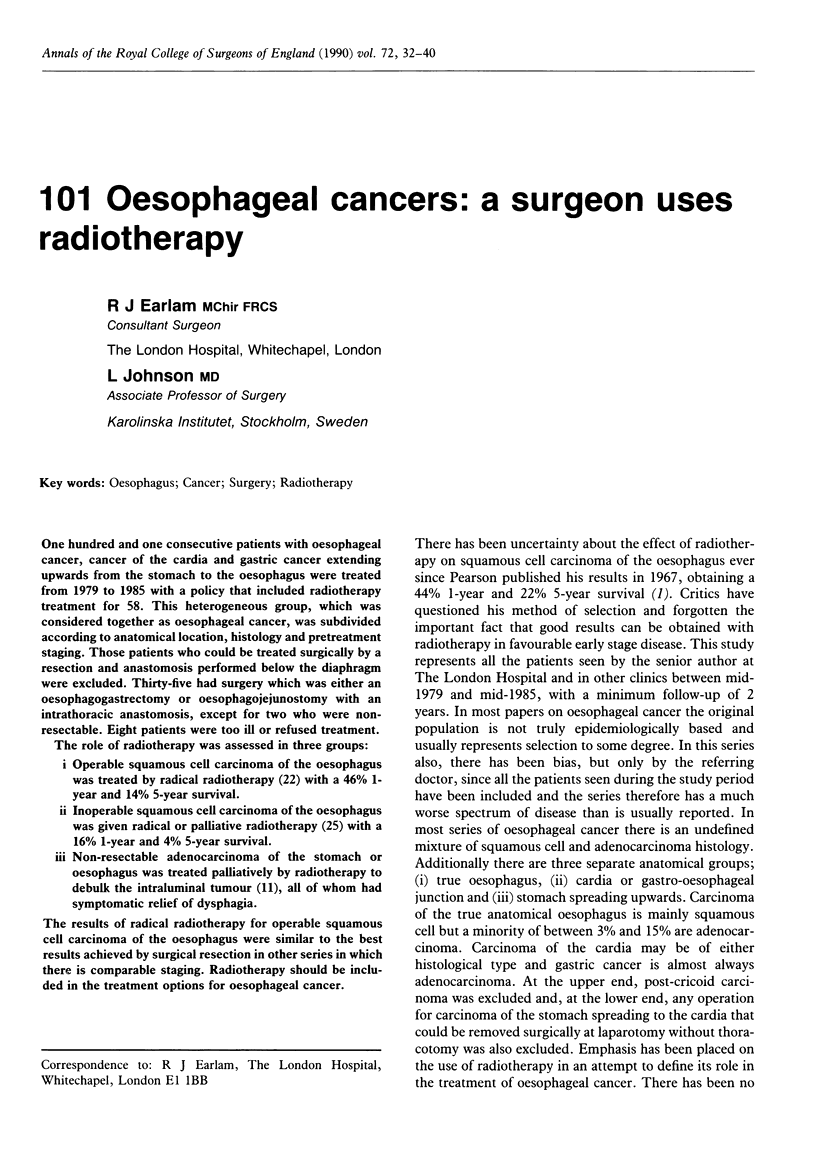
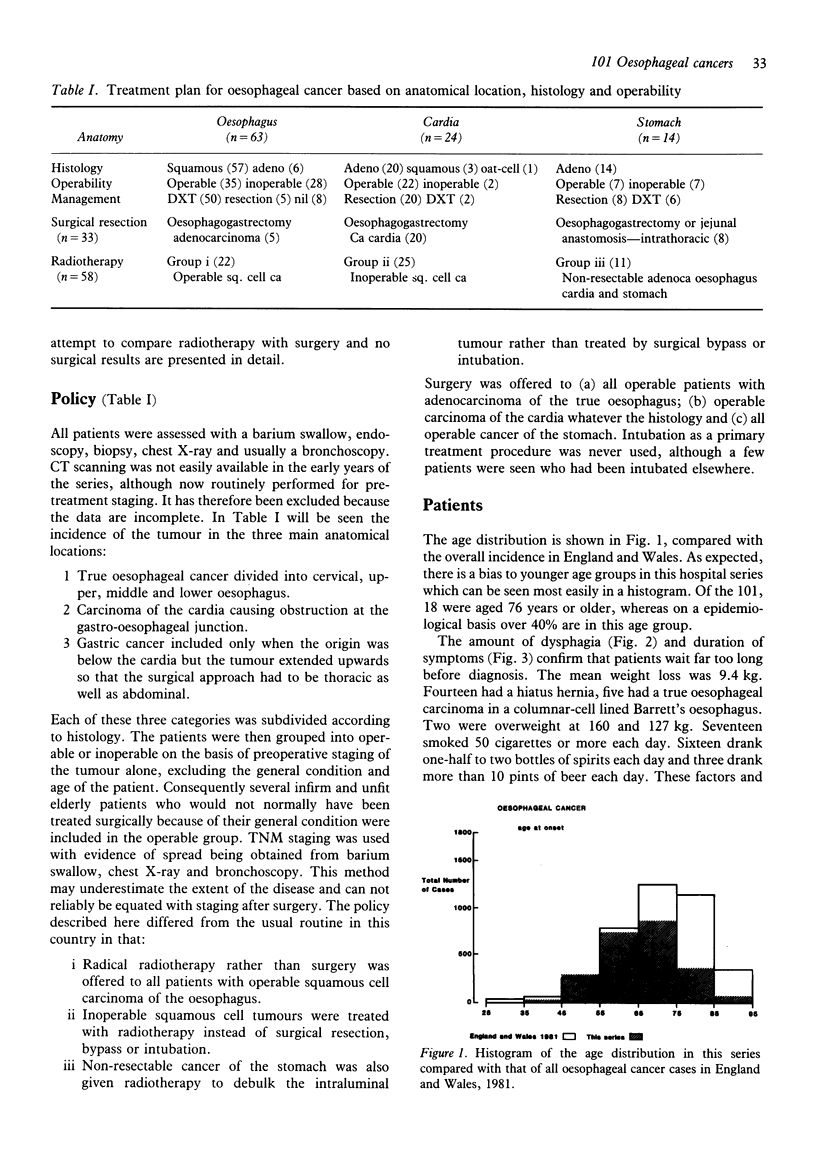
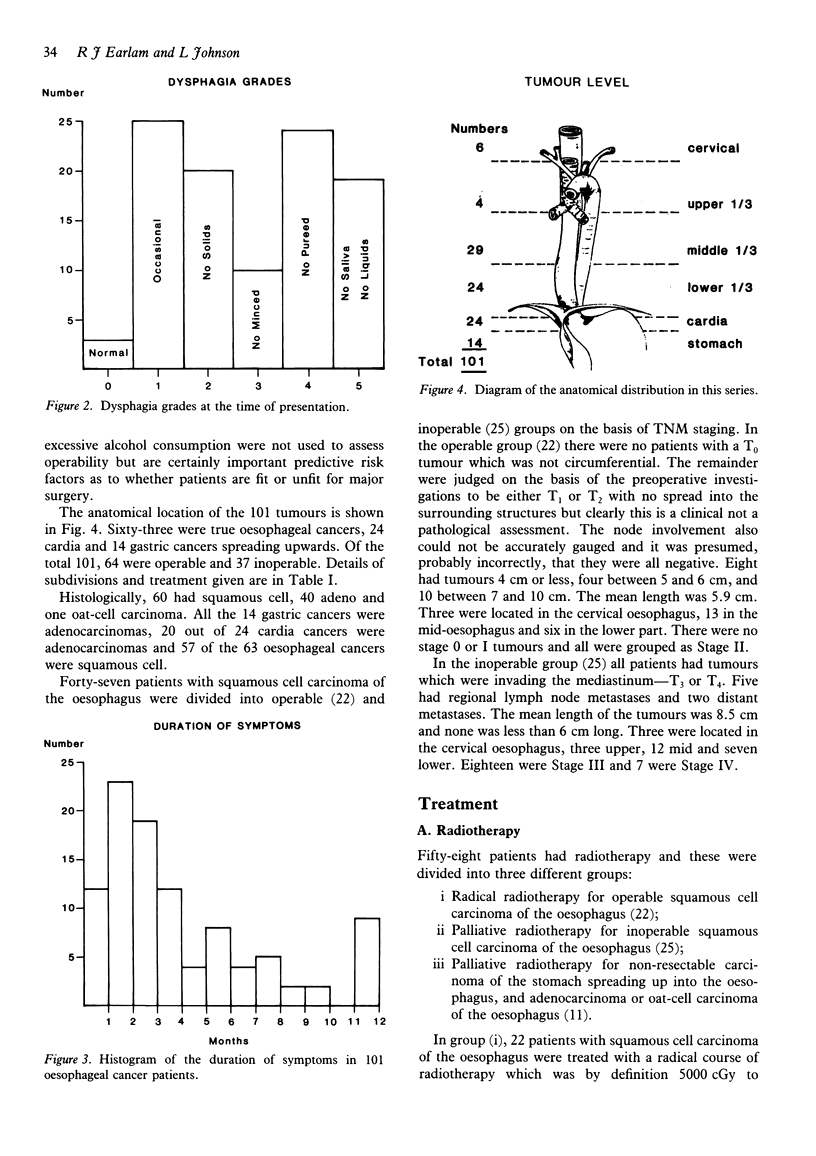
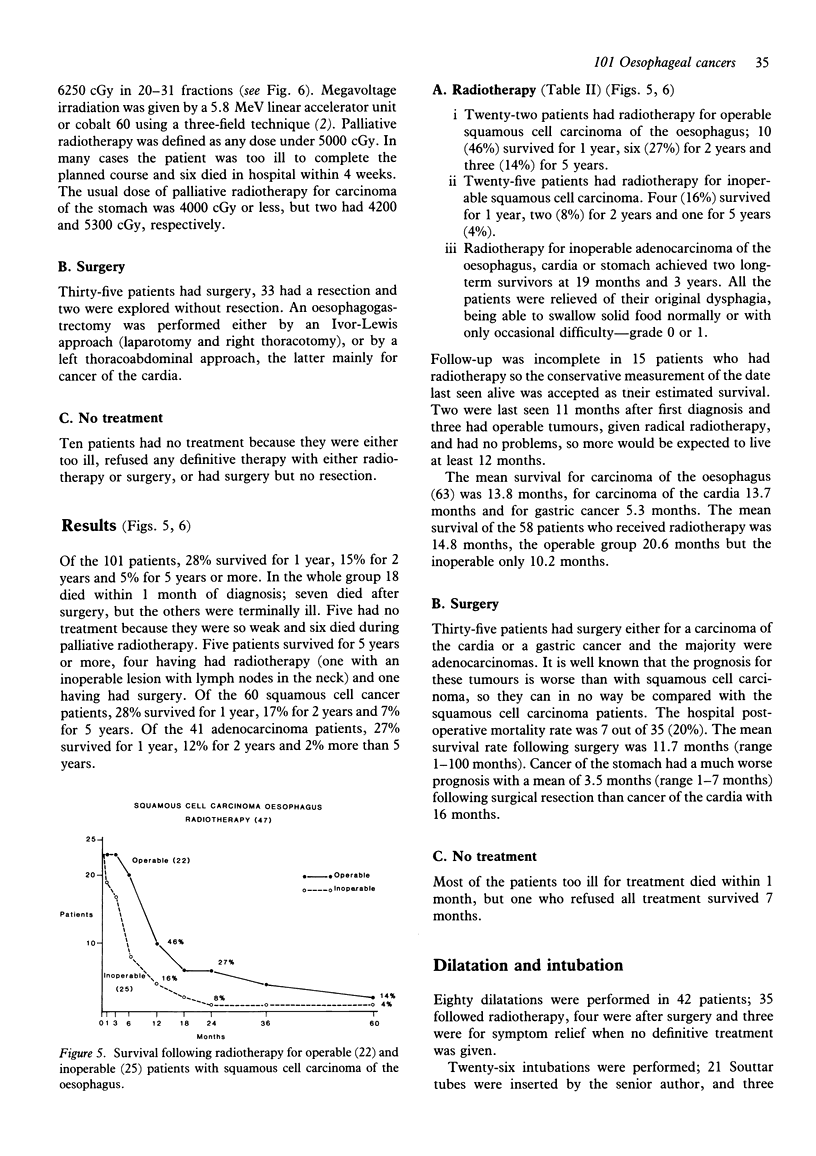
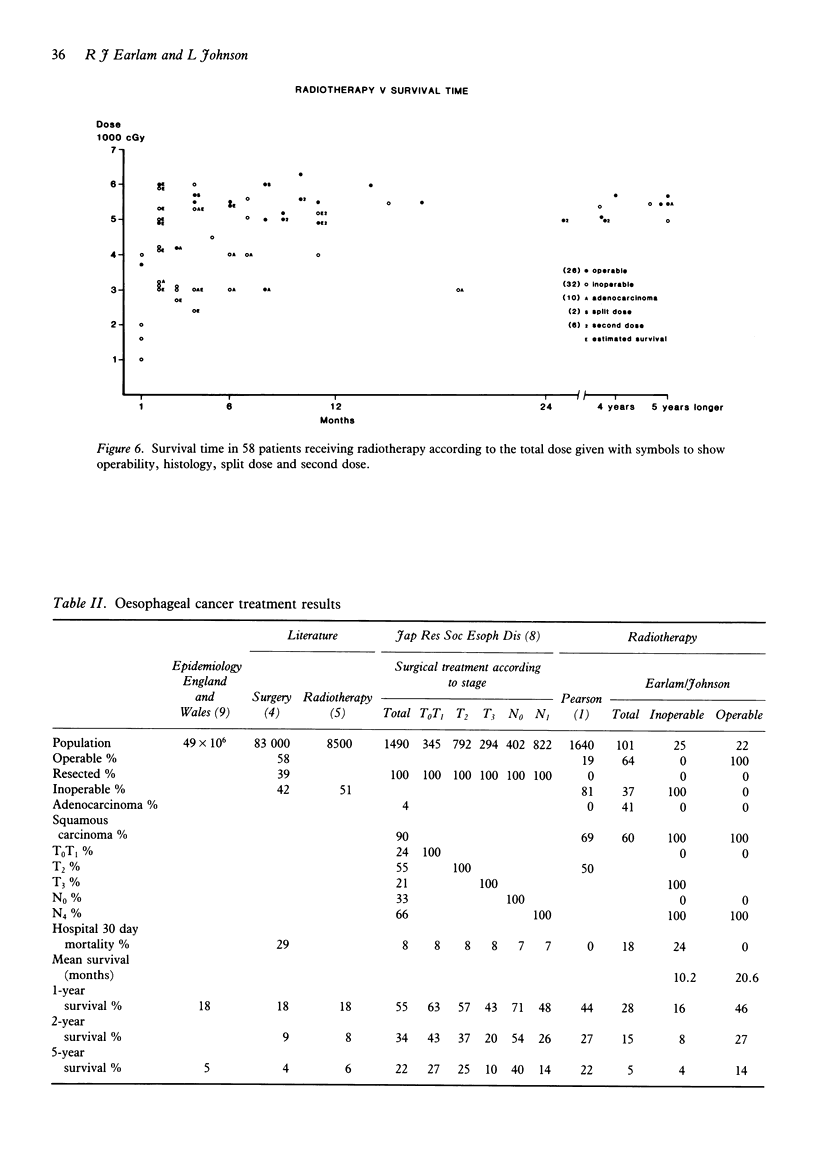
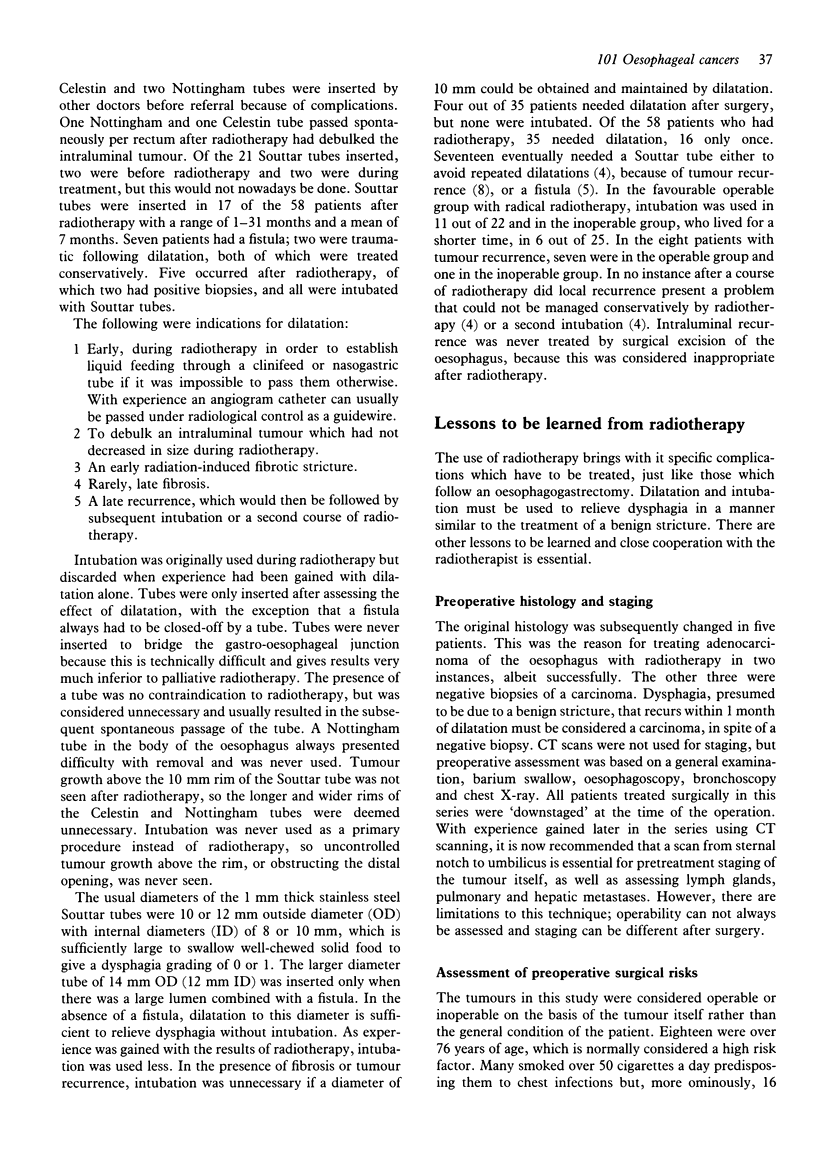
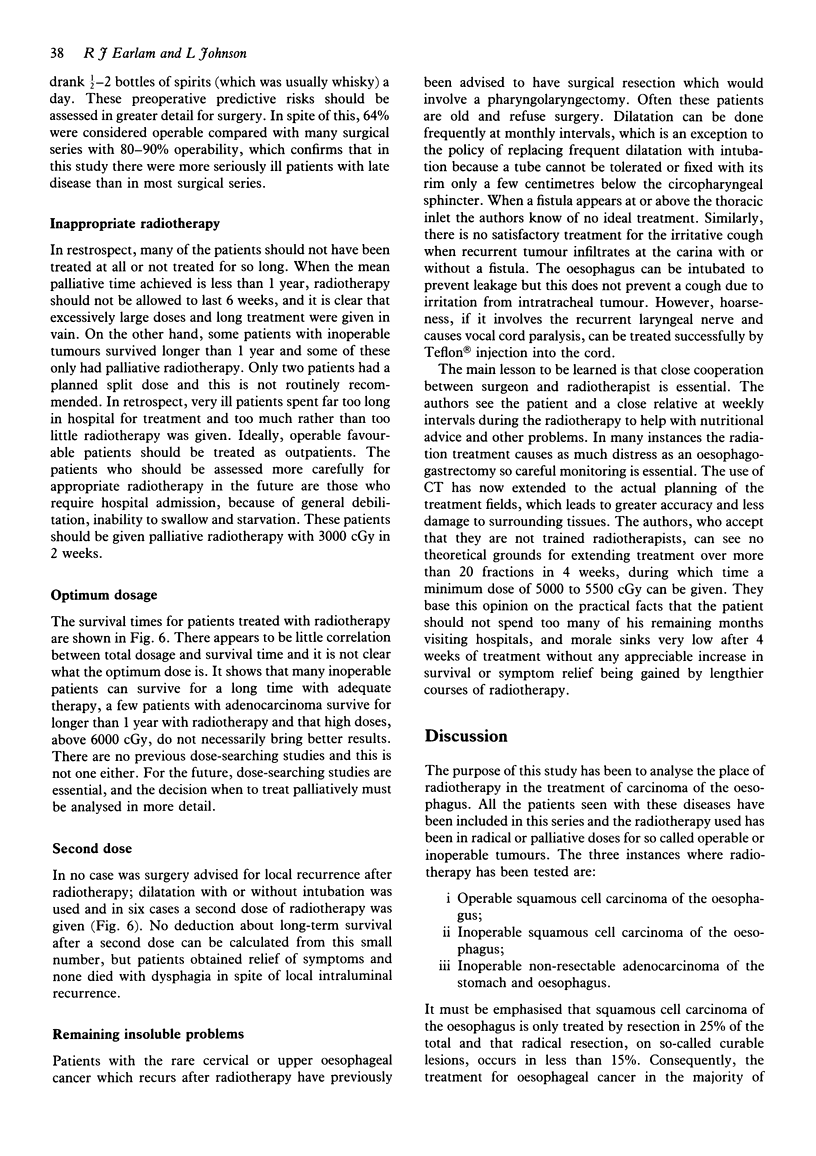
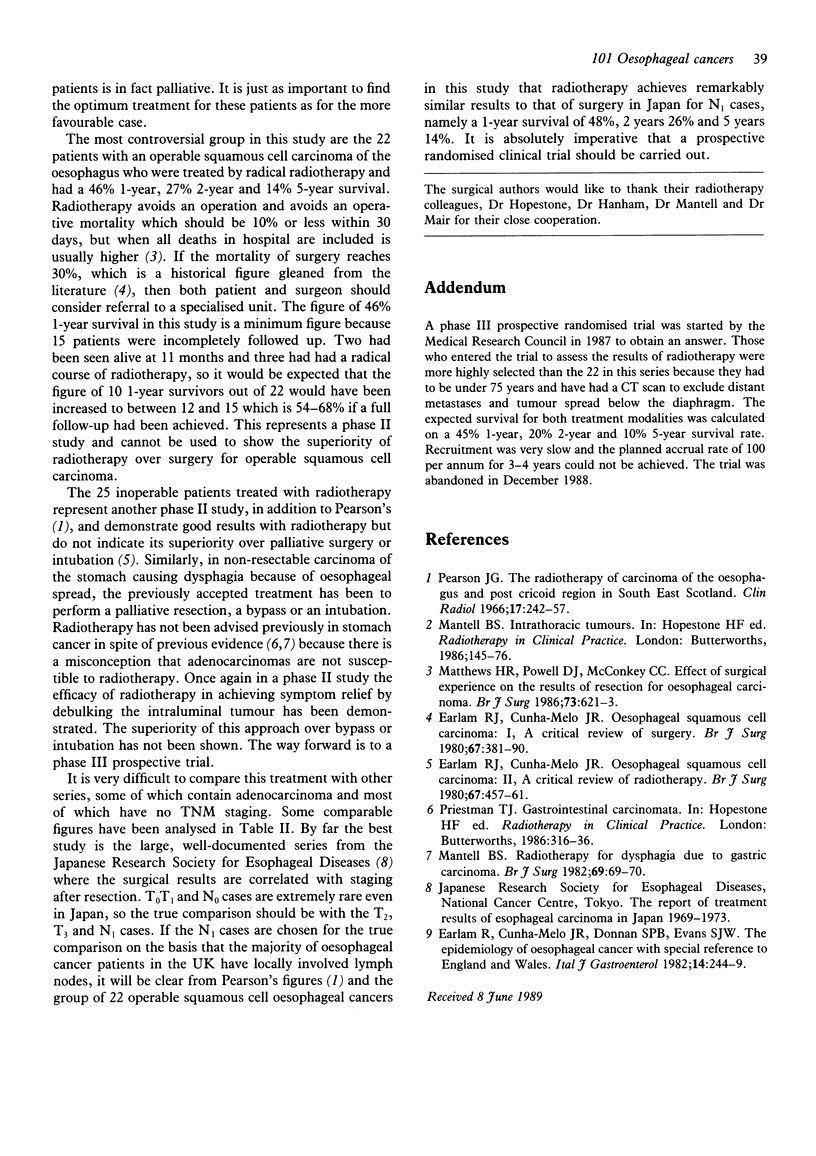
Selected References
These references are in PubMed. This may not be the complete list of references from this article.
- Earlam R., Cunha-Melo J. R. Oesophageal squamous cell carcinoma: I. A critical review of surgery. Br J Surg. 1980 Jun;67(6):381–390. doi: 10.1002/bjs.1800670602. [DOI] [PubMed] [Google Scholar]
- Earlam R., Cunha-Melo J. R. Oesophogeal squamous cell carcinoms: II. A critical view of radiotherapy. Br J Surg. 1980 Jul;67(7):457–461. doi: 10.1002/bjs.1800670702. [DOI] [PubMed] [Google Scholar]
- Mantell B. S. Radiotherapy for dysphagia due to gastric carcinoma. Br J Surg. 1982 Feb;69(2):69–70. doi: 10.1002/bjs.1800690203. [DOI] [PubMed] [Google Scholar]
- Matthews H. R., Powell D. J., McConkey C. C. Effect of surgical experience on the results of resection for oesophageal carcinoma. Br J Surg. 1986 Aug;73(8):621–623. doi: 10.1002/bjs.1800730811. [DOI] [PubMed] [Google Scholar]
- Pearson J. G. The radiotherapy of carcinoma of the oesophagus and post cricoid region in south east Scotland. Clin Radiol. 1966 Jul;17(3):242–257. doi: 10.1016/s0009-9260(66)80030-2. [DOI] [PubMed] [Google Scholar]


